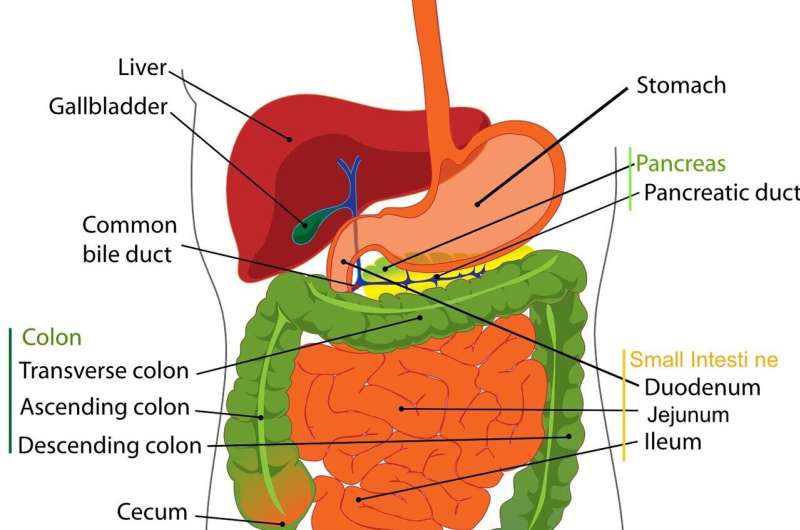This article has been reviewed according to Science X's editorial process and policies. Editors have highlighted the following attributes while ensuring the content's credibility:
fact-checked
peer-reviewed publication
trusted source
proofread
Study finds volume of liver resection during gallbladder surgery doesn't significantly affect overall survival

Gallbladder cancer is most common in people who have gallstones or have had gallstones in the past. While uncommon, most gallbladder cancers are discovered at a late stage when the prognosis is often poor and liver resection is pivotal for treatment. However, there is debate about how much of the liver should be removed when performing gallbladder cancer surgery.
A new study by researchers from Boston University Chobanian & Avedisian School of Medicine has found no difference in overall survival rate based on how much of the liver is resected provided the cancer is completely removed.
"When the surgery to remove gallbladder cancer is successful and all the cancer is removed, the amount of liver that is removed doesn't seem to make a big difference in how long patients live," said corresponding author Eduardo Vega, MD, assistant professor of surgery at the School.
To address the lack of consensus regarding optimal resection, the researchers reviewed the medical records of 101 patients of Hospital Sotero del Rio Chile who had surgery to remove gallbladder cancer between 1999 and 2018. Chile has one of the highest incidences of gallbladder cancer in the world.
Researchers analyzed the complications that occurred after the surgery and calculated the expected size of the liver that would be removed during two different types of surgeries and documented how long the patients lived after the surgery using statistical methods.
While there was no difference in survival rates, the researchers found when larger pieces of the liver were removed, patients tended to have more complications and longer hospital stays. Specifically, for patients with more advanced stage cancer, they found removing a portion of the liver (between 77.5 cm³ and 105 cm³) appeared to be a good balance, reducing the risk of complications while addressing concerns about the cancer coming back.
According to the researchers, these findings have important clinical implications that challenge the concept that removing more tissue is better in cancer surgery. "By considering these findings, health care professionals can potentially improve patient outcomes and reduce post-surgery complications for individuals undergoing gallbladder cancer treatment," adds Vega.
Vega hopes this study will contribute to more precise and personalized surgical treatments for gallbladder cancer, leading to improved outcomes and a better quality of life for individuals facing this disease.
These finds appear online in the Annals of Surgical Oncology.
More information: Eduardo A. Vega et al, ASO Visual Abstract: Benchmarks and Geographic Differences in Gallbladder Cancer Surgery: An International Multi-center Study, Annals of Surgical Oncology (2023). DOI: 10.1245/s10434-023-13616-y




















